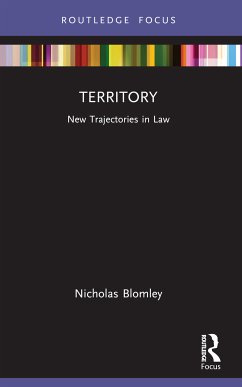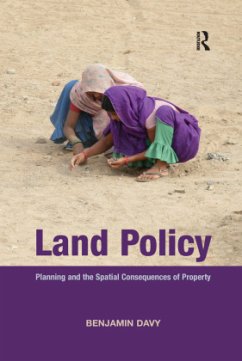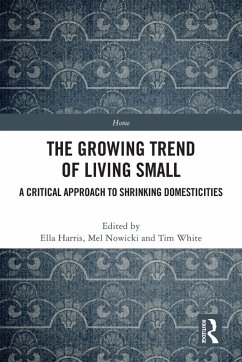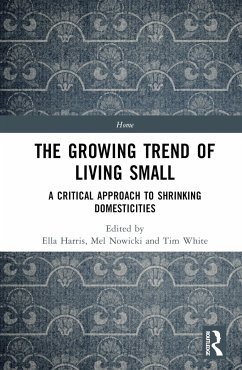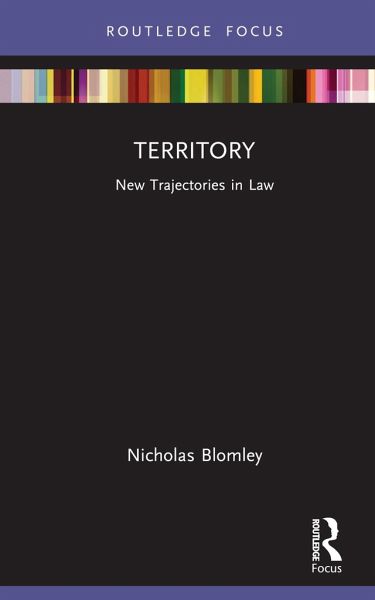
Territory
New Trajectories in Law
Versandkostenfrei!
Versandfertig in 6-10 Tagen
56,99 €
inkl. MwSt.
Weitere Ausgaben:

PAYBACK Punkte
28 °P sammeln!
This book introduces readers to the concept of territory as it applies to law while demonstrating the particular work that territory does in organizing property relations.Territories can be found in all societies and at all scales, although they take different forms. The concern here is on the use of territories in organizing legal relations. Law, as a form of power, often works through a variety of territorial strategies, serving multiple legal functions, such as attempts at creating forms of desired behaviour. Landed property, in Western society, is often highly territorial, reliant on sharp...
This book introduces readers to the concept of territory as it applies to law while demonstrating the particular work that territory does in organizing property relations.
Territories can be found in all societies and at all scales, although they take different forms. The concern here is on the use of territories in organizing legal relations. Law, as a form of power, often works through a variety of territorial strategies, serving multiple legal functions, such as attempts at creating forms of desired behaviour. Landed property, in Western society, is often highly territorial, reliant on sharply policed borders and spatial exclusion. But rather than thinking of territory as obvious and given or as a natural phenomenon, this book focuses particularly on its relation to property to argue that territory is both a social product, and a specific technology that organizes social relations. That is: territory is not simply an outcome of property relations but a strategic means by which such relations are communicated, imagined, legitimized, enforced, naturalized and contested.
Accessible to students, this book will be of interest to those working in the areas of sociolegal studies, geography, urban studies, and politics.
Territories can be found in all societies and at all scales, although they take different forms. The concern here is on the use of territories in organizing legal relations. Law, as a form of power, often works through a variety of territorial strategies, serving multiple legal functions, such as attempts at creating forms of desired behaviour. Landed property, in Western society, is often highly territorial, reliant on sharply policed borders and spatial exclusion. But rather than thinking of territory as obvious and given or as a natural phenomenon, this book focuses particularly on its relation to property to argue that territory is both a social product, and a specific technology that organizes social relations. That is: territory is not simply an outcome of property relations but a strategic means by which such relations are communicated, imagined, legitimized, enforced, naturalized and contested.
Accessible to students, this book will be of interest to those working in the areas of sociolegal studies, geography, urban studies, and politics.




